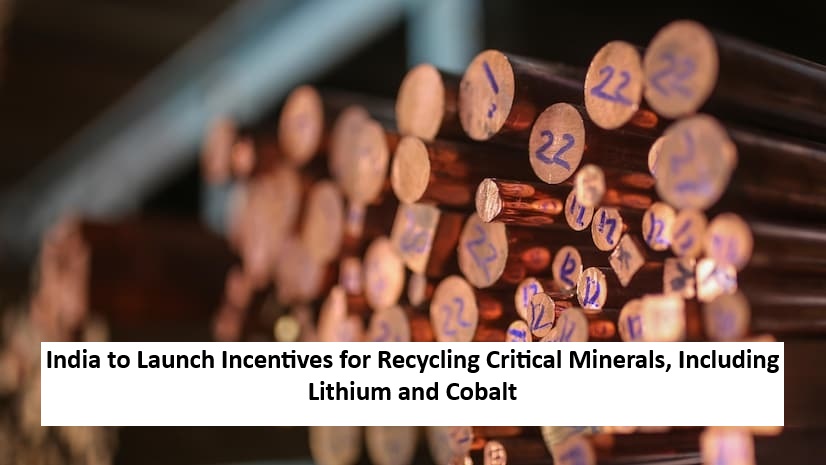
India is planning to introduce incentives for recycling 24 critical minerals, including lithium and cobalt, in 2025 as part of its broader strategy to transition toward clean energy and achieve net zero carbon emissions by 2070, according to sources familiar with the plan.
The government has already earmarked Rs 1,500 crore for mineral recycling within a larger Rs 16,300 crore investment package for developing the critical minerals sector.
Form of Incentives and Implementation Timeline
The incentives may include:
Capital expenditure subsidies
Production-linked incentives
While details are yet to be finalized, the program is expected to roll out over four to five years, with the goal of jumpstarting a viable domestic mineral recycling industry.
Focus on Lithium-Ion Battery Recycling
A key aim of the program is to expand India’s lithium-ion battery recycling capacity, currently around 75,000 metric tons annually. Increasing capacity is essential for meeting the raw material demands of India’s growing electric vehicle (EV) market and other green technologies.
To support availability, the government had earlier removed customs duties on waste and scrap imports for a dozen critical materials, including lithium-ion batteries, lead, zinc, and cobalt powder.
Aligning with EV Growth and Fossil Fuel Reduction Goals
The move aligns with India’s push to promote electric vehicles as an alternative to fossil fuel-based transport. In 2024, EVs accounted for 2.5% of India’s total 4.3 million car sales, growing at 20% year-over-year—significantly higher than the 5% growth of the overall auto market.
Analysts forecast that EV sales in India will double to around 200,000 units in 2025, driven by new model launches and rising consumer interest.

 Share
Share



